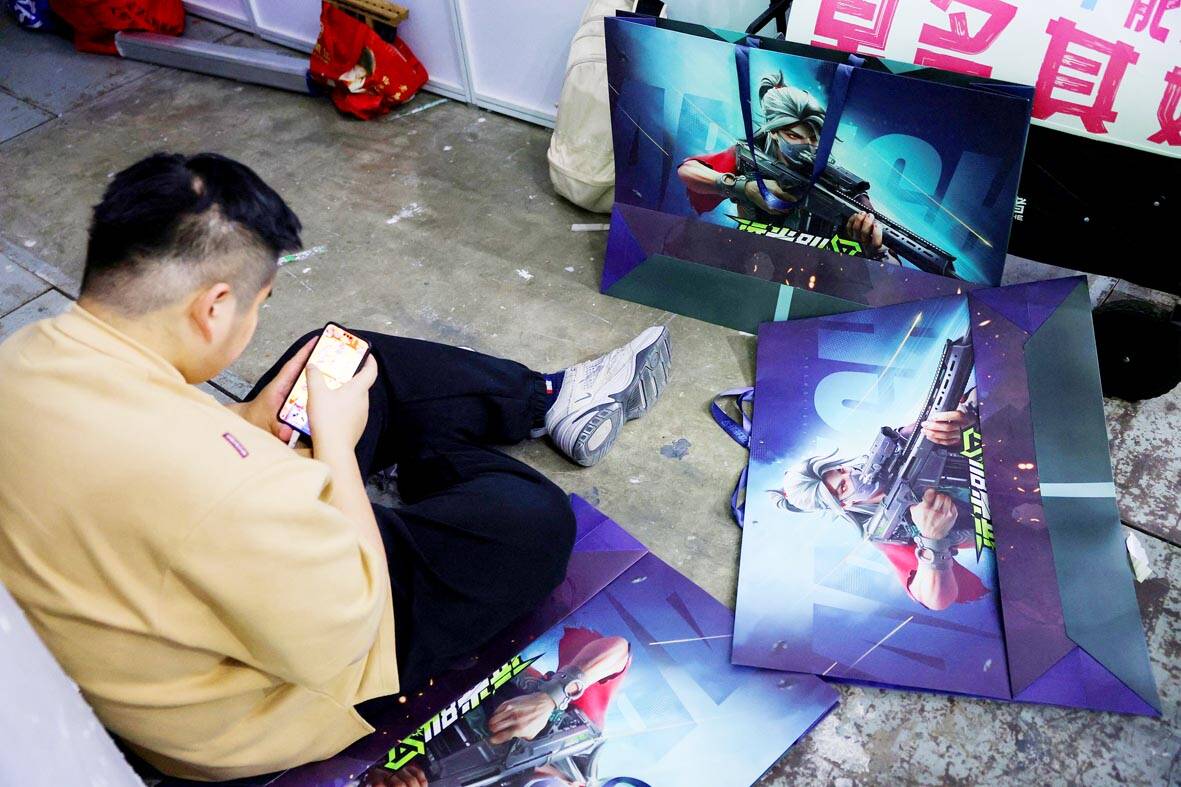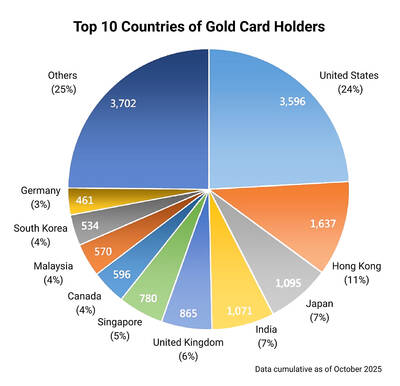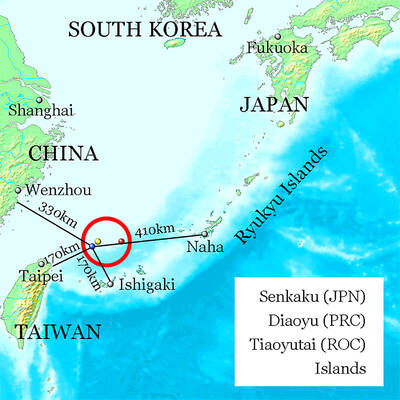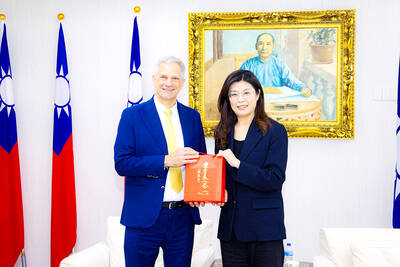A town in Japan is to urge all residents to restrict their smartphone use to two hours a day in an attempt to tackle online addiction and sleep deprivation.
Officials in Toyoake, Aichi prefecture, said the measure would target not only children but also adults, amid growing concern about the physical and psychological toll excessive smartphone use is taking on people of all ages.
The move aims “to prevent excessive use of devices causing physical and mental health issues … including sleep problems,” the mayor, Masafumi Koki said recently.

Photo: Reuters
The Toyoake municipal assembly began debating the non-binding ordinance this week ahead of a vote scheduled for late next month. If the draft passes it will go into effect in October. The measure will not, however, carry penalties for those who exceed the two-hour daily limit.
The draft urges primary school students — those aged six to 12 — and younger children to avoid using smartphones or tablets after 9pm, while teenagers and adults are encouraged to put their devices to one side after 10pm.
BACKLASH
The proposal, the first of its kind to apply to all residents, triggered a backlash on social media. Some users condemned it as an attack on individual freedom, while other said the time limit was simply unworkable.
“I understand their intention, but the two-hour limit is impossible,” one user wrote on X. Another said: “Two hours isn’t even enough to read a book or watch a movie (on my smartphone).”
In response, Koki said the time limit was not mandatory and acknowledged that smartphones were “useful and indispensable in daily life.” But he added: “I hope it will be an opportunity for families to think about and discuss the time they spend on smartphones as well as the time of day the devices are used.”
The proposal has not gone down well with many of Toyoake’s 69,000 residents. Officials received 83 phone calls and 44 e-mails over a four-day period after the announcement, 80 percent of which were critical of the measure, according to the Mainichi Shimbun newspaper.
Officials say the proposal was designed to address behavioral problems associated with excessive smartphone use, including truancy among children who can’t bear to leave their phones at home when they go to school.
Koki said there was also anecdotal evidence that adults in the town were glued to their phones when they should be sleeping or spending time with their families.
Toyoake’s initiative reflects growing concern about the negative health impact, especially on children, of hours spent hunched over smartphones and tablets.
In 2020, a region in western Japan passed an ordinance — also non-binding — limiting children to an hour a day of gaming during the week, rising to 90 minutes during the school holidays.
Young Japanese spend an average of just over five hours a day online on weekdays, according to a survey released this year by the Children and Families Agency.

Seven hundred job applications. One interview. Marco Mascaro arrived in Taiwan last year with a PhD in engineering physics and years of experience at a European research center. He thought his Gold Card would guarantee him a foothold in Taiwan’s job market. “It’s marketed as if Taiwan really needs you,” the 33-year-old Italian says. “The reality is that companies here don’t really need us.” The Employment Gold Card was designed to fix Taiwan’s labor shortage by offering foreign professionals a combined resident visa and open work permit valid for three years. But for many, like Mascaro, the welcome mat ends at the door. A

Last week gave us the droll little comedy of People’s Republic of China’s (PRC) consul general in Osaka posting a threat on X in response to Japanese Prime Minister Sanae Takaichi saying to the Diet that a Chinese attack on Taiwan may be an “existential threat” to Japan. That would allow Japanese Self Defence Forces to respond militarily. The PRC representative then said that if a “filthy neck sticks itself in uninvited, we will cut it off without a moment’s hesitation. Are you prepared for that?” This was widely, and probably deliberately, construed as a threat to behead Takaichi, though it

If China attacks, will Taiwanese be willing to fight? Analysts of certain types obsess over questions like this, especially military analysts and those with an ax to grind as to whether Taiwan is worth defending, or should be cut loose to appease Beijing. Fellow columnist Michael Turton in “Notes from Central Taiwan: Willing to fight for the homeland” (Nov. 6, page 12) provides a superb analysis of this topic, how it is used and manipulated to political ends and what the underlying data shows. The problem is that most analysis is centered around polling data, which as Turton observes, “many of these

Since Cheng Li-wun (鄭麗文) was elected Chinese Nationalist Party (KMT) chair on Oct. 18, she has become a polarizing figure. Her supporters see her as a firebrand critic of the ruling Democratic Progressive Party (DPP), while others, including some in her own party, have charged that she is Chinese President Xi Jinping’s (習近平) preferred candidate and that her election was possibly supported by the Chinese Communist Party’s (CPP) unit for political warfare and international influence, the “united front.” Indeed, Xi quickly congratulated Cheng upon her election. The 55-year-old former lawmaker and ex-talk show host, who was sworn in on Nov.